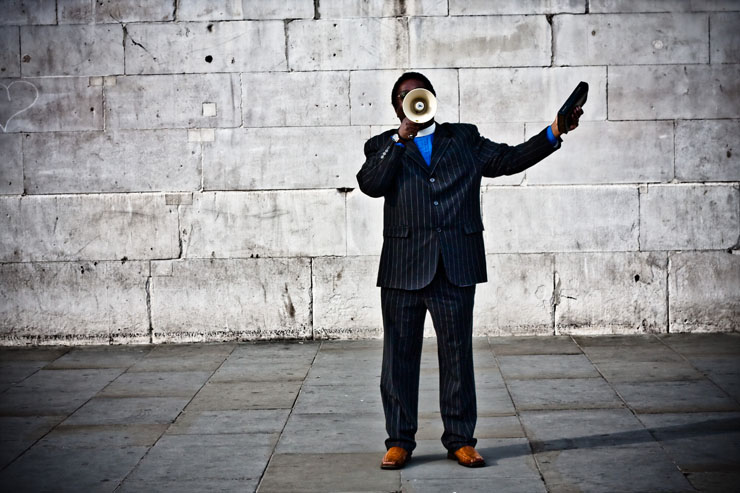McCutcheon is Bad, But for Different Reasons
I rediscovered this post I wrote this post for a class blog back in college in 2014. Since then, I think it’s become clear that money is no guarantee of electoral success, and yet, a small handful of people still exercise disproportionate influence in U.S. politics through their donations to candidates.
To say “money isn’t speech,” is like saying “guns don’t kill people, people do.” To paraphrase comedian Eddie Izzard, I think the money helps.
Money lets you amplify your speech, present your speech on different mediums, hire people to help you make your speech sound better. Speech made on your behalf by others costs money.
When the New York Times endorses a candidate, that speech has tremendous monetary value. So should the Times be limited to endorsing sixteen candidates and no more?
The amicus briefs that the American Civil Liberties Union and Brennan Center for Justice file in court cases cost huge sums to prepare. Should donors to those organizations be limited by either by dollar amount or by the number of other organizations which they are allowed to support?

Because that’s essentially what the Supreme Court struck down in McCutcheon v. Federal Election Commission.
The 2002 Bipartisan Campaign Reform Act put a $46,200 cap on contributions to candidates for federal elections, $70,088 per political party, with a $117,000 overall limit. These laws limited plaintiff Shaun McCutcheon to donating to a total of sixteen federal candidates. Why should he only be allowed to back his support of candidates with money sixteen times?
That’s why I think “money doesn’t equal speech” makes a poor argument. And setting arbitrary limits on the amount of money one can spend on a candidate is a bad way to go about campaign finance reform. But it’s also clear that there is a problem with money and elections in this country.
Loudspeakers and Bad Pizza
There’s a man standing in front of a pizza joint. He shouts to passersby that the owners are evil, they adulterate the food, and treat their employees poorly. Some people listen, some ignore him.
But then, the pizza joint owners hire someone with a bullhorn to stand next to the first guy and sing the pizza joint’s praises. It’s hard to hear what first guy has to say over the man hired by the owners.
What if instead, the pizza joint owners hire one of those sound trucks. The man still only has his voice. What he’s saying about the pizza joint might be true, but it doesn’t matter because no one can hear him.

Harvard law Professor Lawrence Lessig provides a much more concrete explanation of what happens when only the loudest (richest) voices are heard:
Lessig dives even further here.
The insidious problem with the McCutcheon decision is that if the townspeople in our analogy above were to pass a law that provided a mechanism by which they could more easily hear the man shouting in front of the pizza joint, perhaps by limiting the volume of voice amplification devices used in public, that would be unconstitutional.
From page 18 of the majority’s decision penned by Chief Justice John Roberts:
We have consistently rejected attempts to suppress campaign speech based on other legislative objectives. No matter how desirable it may seem, it is not an acceptable governmental objective to “level the playing field,” or to “level electoral opportunities,” or to “equaliz[e] the financial resources of candidates.”
Since when do the justices of the Supreme Court tell the American people what is or is not an “acceptable governmental objective?” It’s one thing to strike down bits of legislation that an aggrieved party brings before the Court, but it’s quite another for Roberts to tell us what political goals we are and aren’t allowed to pursue.
Campaign donations are largely spent on advertising, so what if we decided to ban political ads on television as the Danes have done? Well the Citizens United decision pretty much put the nail in that coffin.
What if we had a public matching funds system? If Candidate A receives a $35,000 donation, Candidate B automatically gets $35,000. Everyone would be free to give as much as they like, so no one’s free speech rights are being infringed, but the overall amount of money spent on elections would be reduced. After all, why would you bother donating $35,000 to a candidate when his opponent will get the same amount?

That won’t work either. As Roberts just told us, that’s not an acceptable governmental objective. Indeed, the Roberts court ruled in Arizona Free Enterprise Club Freedom Club PAC v. Bennett, matching funds are unconstitutional because people might feel discouraged from donating to a candidate if their donation (speech) will, as Adam Liptak put it in the article linked above, “give rise to counterspeech paid for by the government.”
Okay then, what if we make it illegal for elected officials to accept campaign money or gifts or any favors so their decisions while in office won’t be swayed by the loss or gain of campaign cash. Or, what if, like judges, we require lawmakers to recuse themselves from votes in which they have a conflict-of-interest?
Well, as Roberts explains on page 2 of the decision, you just don’t get it.
We have said that government regulation may not target the general gratitude a candidate may feel toward those who support him or his allies, or the political access such support may afford. “Ingratiation and access . . . are not corruption.” […] They embody a central feature of democracy—that constituents support candidates who share their beliefs and interests, and candidates who are elected can be expected to be responsive to those concerns. [Emphasis mine.]
You see, it turns out that the corrosive cycle in which lawmakers do what their biggest donors want, which leads to more donations and a tighter adherence to the wishes of their donors, simultaneously allowing said donors to enrich themselves through their governmental influence, all while the fundamental issues festering in this country (like campaign finance reform) go untreated—that’s not a bug, it’s a central feature of our republic and you’re not allowed to do anything about it.